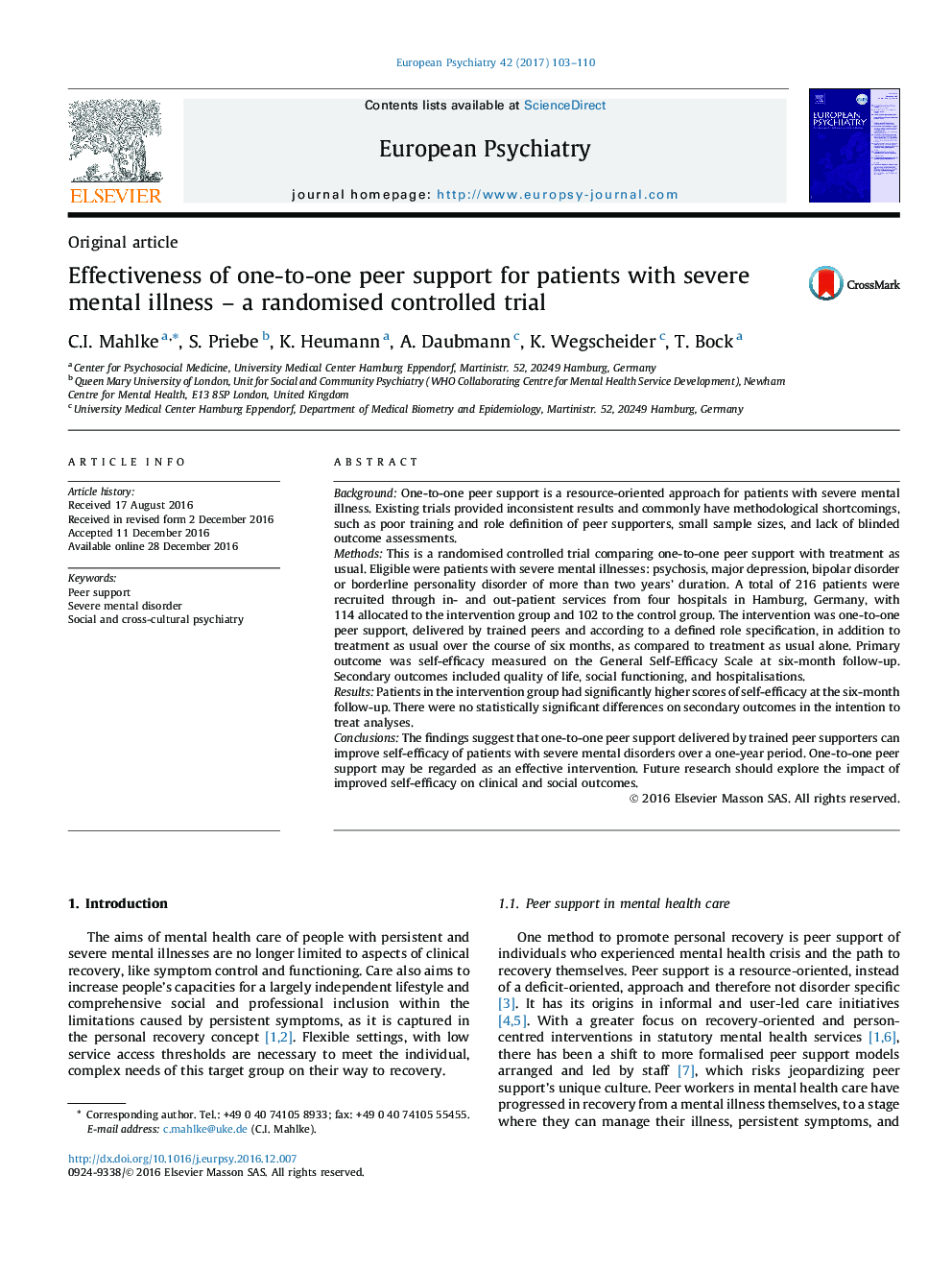| Article ID | Journal | Published Year | Pages | File Type |
|---|---|---|---|---|
| 5721450 | European Psychiatry | 2017 | 8 Pages |
BackgroundOne-to-one peer support is a resource-oriented approach for patients with severe mental illness. Existing trials provided inconsistent results and commonly have methodological shortcomings, such as poor training and role definition of peer supporters, small sample sizes, and lack of blinded outcome assessments.MethodsThis is a randomised controlled trial comparing one-to-one peer support with treatment as usual. Eligible were patients with severe mental illnesses: psychosis, major depression, bipolar disorder or borderline personality disorder of more than two years' duration. A total of 216 patients were recruited through in- and out-patient services from four hospitals in Hamburg, Germany, with 114 allocated to the intervention group and 102 to the control group. The intervention was one-to-one peer support, delivered by trained peers and according to a defined role specification, in addition to treatment as usual over the course of six months, as compared to treatment as usual alone. Primary outcome was self-efficacy measured on the General Self-Efficacy Scale at six-month follow-up. Secondary outcomes included quality of life, social functioning, and hospitalisations.ResultsPatients in the intervention group had significantly higher scores of self-efficacy at the six-month follow-up. There were no statistically significant differences on secondary outcomes in the intention to treat analyses.ConclusionsThe findings suggest that one-to-one peer support delivered by trained peer supporters can improve self-efficacy of patients with severe mental disorders over a one-year period. One-to-one peer support may be regarded as an effective intervention. Future research should explore the impact of improved self-efficacy on clinical and social outcomes.
